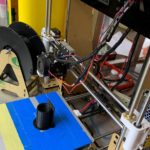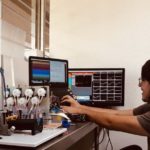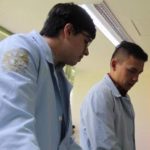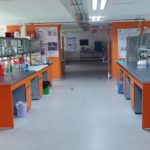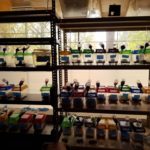
| Location within campus: | Almaraz University Clinic for Comprehensive Health. |
| Phone: | 5515119226 |
| Head of Laboratory: | Dr. Isaac Obed Pérez Martínez Full Professor A isaac.perez@unam.mx |
| Research lines per researcher: | Identification and Characterization of the Neuronal Language Underlying Motor Responses Induced by Orofacial and Gustatory Somatosensory Perception. Functional Dissection of the Circuits Controlling Experimental Placebo and Nocebo Effects. Exploration of Non-pharmacological Therapeutic Alternatives for Neuropathic Pain Treatment, Experimental Facial Paralysis Treatment, and Disorders in Alcohol Consumption Treatment. |

The work in the laboratory has focused on the study of orofacial pain, both nociceptive and neuropathic, and its effects on the sensory, emotional, and cognitive dimensions.
Our data suggest that changes in the activity of specific neural circuits underlie adaptations to environmental challenges, leading to depression, anhedonia, and an increased predisposition to develop alcohol use disorders. The search for treatments that target not only the sensory dimension of pain has driven us to implement novel techniques in the study and control of neural circuits. As part of therapeutic alternatives for pain, we investigate circuits that modulate the emotional and cognitive control of pain, explaining the placebo and nocebo effects experimentally.
On the other hand, we aim to restore motor deficits following experimental cranial nerve injuries. For this purpose, we utilize artificial intelligence tools to detect orofacial responses to intraoral sensations, with the goal of understanding the neural language underlying these movements. Understanding the neuronal activity that represents orofacial movement will enable us to replicate it and restore lost motor elements through motor nerve injury using a brain-machine interface.

Pérez-Martínez, I. O., Acevedo-Roque, C. R., Montes-Angeles, C. D., Martínez, M., & Miranda, F. (2019). Mental nerve injury induces novelty seeking behaviour leading to increasing ethanol intake in Wistar rats. Archives of oral biology, 99, 66-72.
Han, W., Tellez, L. A., Perkins, M. H., Perez, I. O., Qu, T., Ferreira, J., … & Kaelberer, M. M. (2018). A neural circuit for gut-induced reward. Cell, 175(3), 665-678.
Han, W., Tellez, L. A., Rangel, M. J., Jr., Motta, S. C., Zhang, X., Perez, I. O., Canteras, N. S., Shammah-Lagnado, S. J., van den Pol, A. N., de Araujo, I. E. (2017). “Integrated Control of Predatory Hunting by the Central Nucleus of the Amygdala.” Cell 168(1-2): 311-324 e318.
Tellez, Luis A., Han, Wenfei, Zhang, Xiaobing, Ferreira, Tatiana L., Perez, Isaac O., Shammah-Lagnado, Sara J., van den Pol, Anthony N., de Araujo, Ivan E. (2016). “Separate circuitries encode the hedonic and nutritional values of sugar.” Nat Neurosci 19(3): 465-470.
Perez, I. O., Villavicencio, M., Simon, S. A., & Gutierrez, R. (2013). Speed and accuracy of taste identification and palatability: impact of learning, reward expectancy, and consummatory licking. American Journal of Physiology-Regulatory, Integrative and Comparative Physiology, 305(3), R252-R270.

| Entry profile of potential thesis students: | Students from a field of study related to Health Sciences or Engineering. It’s essential that the student is self-motivated, independent, and has a strong interest in computer interface control programming and data analysis. Additionally, the student should have a keen interest in the study of oral sensations and movements and the investigation of the neuronal activity underlying these processes.. |
| Service Social Data: | Orofacial Pain Neurobiology 2020-12/63.3378. Research activities in neuroscience systems. Conducting a thesis project and collaborating on ongoing projects. Participation in laboratory seminars. |

